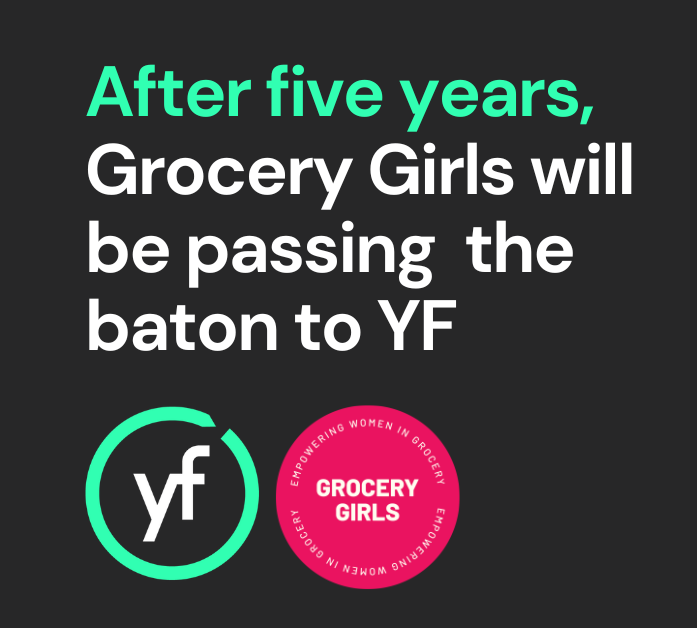
Subscribe to
YF mailing list
Subscribe today to keep informed of any important industry news and exclusive insights on how you can scale and strengthen your business.
Building a business is very different to building a brand. These two things are too often thought of in isolation, but the latter cannot happen at scale without business foundations, and the former benefits immeasurably from latter.

Each brand has their own unique DNA. In the world of consumer, this DNA is developed and communicated in such a way to appeal to an audience whom we hope notice, associate with, and then proceed to spend money on the brand.
The best definition for “branding” I could find (as the Oxford Dictionary doesn’t really cut it) is from the Business Dictionary:
“The process involved in creating a unique name and image for a product in the consumers’ mind, mainly through advertising campaigns with a consistent theme. Branding aims to establish a significant and differentiated presence in the market that attracts and retains loyal customers.”
A brand is a sign of your identity, how you behave, and what you stand for. Your brand is what customers come to associate with your credibility, quality, and behaviour as a business.
So, isn’t it, therefore, true that every business is a brand? They don’t have to be consumer-facing to have their own brand identity.
However, what I (remarkably) find isn’t always true is that every brand is a business.
What makes a great brand is vastly different from what makes a great business. I believe that without one the other will either cease to exist, or fail to meet its full potential.
Can a brand survive without a great business behind it? Sure, for a while. Many startup businesses are born from the view of a passionate individual: a view that something could be done better, a view that something isn’t being done at all, or a view that the customer wants something new. The conviction that change should be sought then drives action. Banking has been around forever, but a new wave of challenger brands have been established from the belief that banking can be done better.
Whilst not recommended, brands can for a time, survive on the pure grit and determination of the individual(s) behind it. This is particularly true in food, where the barriers to entry are often much lower.
How? Investors buy into a founder’s drive and commitment, and customers buy into their passion, energy, and innovative new approach. This CAN go the distance if the business foundations aren’t made of jelly and constantly wobbling!
A great business has a strong culture born of great hiring plans, HR practices, and strong leadership. It has great advisers, a level-headed management team, strong financial governance, and a shareholder structure designed for growth not deliberation. The people in this great business plan ahead, they turn down short-term wins that are unsustainable, in favour of long-term investment. They drive change and re-invest in the organisation at all levels.
I could go on, and probably will at some point. But when building the foundations of a great business requires so much, the question will be asked: why not just focus on the brand?
After all, in consumer, that’s what it’s all about — right?
It’s hard to think of a marketplace that isn’t competitive, so it’s vitally important that your brand is able to keep up with the competition in every arena. Having a resilient business is a great advantage. If you’re running a tighter ship than your competitive set, then the chances are you are much better equipped to fend off threats and ready to capitalise on that next opportunity.
“Luck is what happens when preparation meets opportunity.” — Seneca
We’ve seen plenty of examples in recent times of great brands hitting stormy seas as a result of weak legal agreements, poor cash-flow management, and terrible advice.
I will never blame the impressive individuals who have shown great courage to build these brands. But until we launched Young Foodies, there was nobody shouting about all the important business stuff that gets missed time and time again.
We built Young Foodies to ensure that innovative brands build great businesses too, and I continue to be amazed at how much gets de-prioritised at the expense of the short-term wins. If founders are serious about building real scale and genuinely disrupting their respective markets, then the foundations must be in place.
After all, there are plenty of great brands that you will never hear of.
If any of this resonates with you and you would like to explore working with us, have a read of our services page or get in touch.
Subscribe to our mailing list to stay in touch with the latest news, insights and updates from YF.
Subscribe today to keep informed of any important industry news and exclusive insights on how you can scale and strengthen your business.
Our Preferred Suppliers are a selection of businesses that we have vetted and trust to recommend to our brands. We have negotiated discounts or deals with many of them.
Access to the list and discounts is a benefit to Community members only.
Not a member yet? Find out more here